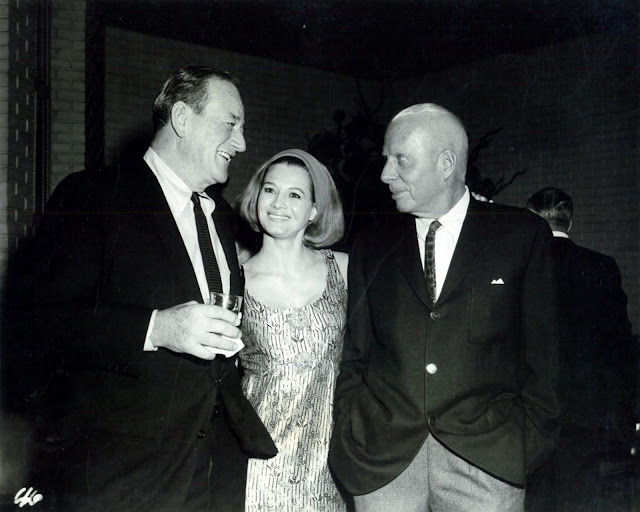Warners' Once In A Lifetime Star Combination
Rio Bravo Packs A 1959 Wallop
Quick recipe for a better Rio Bravo: 90% less of Pedro Gonzalez-Gonzalez and Estelita Rodriguez, 50% off Angie Dickinson's part, her line "I guess I talk too much" a truest uttered in whole of the film, tablespoons more of Rick Nelson, a biggest asset to Rio Bravo outside of Wayne and Dean Martin, and lastly a lingering shot of Dude, or later one of Burdette's henchmen, with hands deep in the spittoon to which a coin is tossed. Latter mention is me being glib, but what I noted in latest Bravo view was fact of no one actually shown reaching into that spittoon. An ick moment to capture close up to be sure, but I wonder if Hawks chose to omit it, or if he was obliged to do so by a still-in-force PCA (the censor group did demand he trim some of Bravo violence, plus suggestive dialogue at the film's fade). Of course, Dude is interrupted in progress toward the spittoon by John Wayne's Chance kicking it away, redeems his humiliation later where the Burdette man is made to plunge hand for another dollar thrown. We hear coinage being retrieved, but do not see it. Was this ultimate degradation too much for 1959 stomachs to bear? You can see I'm reaching for something fresh to say about
As told before, I missed
Hawks observed once that "there are more laughs in
John Wayne's Chance observes that "it's nice to see a smart kid for a change" after early encounter with Ricky Nelson's "
Part of why Howard Hawks leisured with























Comments
Post a Comment